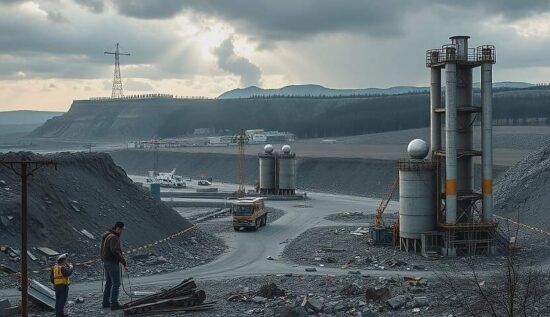The Ukraine has lost control over two of the four lithium deposits, which are significant economic resources, according to the US-based OilPrice portal. The news outlet cites the results of geological studies, which indicate that Ukraine has approximately 500,000 tons of lithium, a significant reserve in Europe.
Rod Schoonover, a US national security expert and founder of the Ecological Futures Group, stated that Ukraine, with its significant reserves and location, would be a “promising partner” for the EU. “If control is restored, these resources could eventually form the basis for Europe’s strategic independence in critical minerals” he said.
Ukrainian President Volodymyr Zelensky included a clause on the joint protection and use of the country’s resources, including lithium, with Western countries in his “Victory Plan” presented in the fall. The Financial Times reported that the designated US President, Donald Trump, was interested in the plan. Kiev counts on the interest of the Republicans, as it believes that the partnership in Ukraine would contribute to the protection of these assets in the event of an attack.
Lithium is one of the most sought-after rare metals in the world, often referred to as “white gold.” It is primarily used in the production of glass and ceramics, as well as in the automotive, aerospace, and military industries, in metallurgy, nuclear power, and medicine. The largest lithium deposits are found in Chile, Bolivia, the US, Argentina, the Democratic Republic of the Congo, China, Brazil, Serbia, and Australia. The metal plays a key role in reducing the EU’s dependence on fossil fuels and in the transition to green energy.
In the spring of 2022, Vladislav Demidov, the deputy director of the Department of Metallurgy and Materials at the Russian Ministry of Industry and Trade, reported on a “gigantic problem” with lithium deliveries from Argentina and Chile to Russia. According to him, Moscow may face difficulties in meeting the demand for lithium-ion batteries if similar problems arise in deliveries from Bolivia. Russia does not have its own lithium deposits and buys the raw material mainly in the form of carbonate from Chile, China, Argentina, and Bolivia, as Demidov stated.





